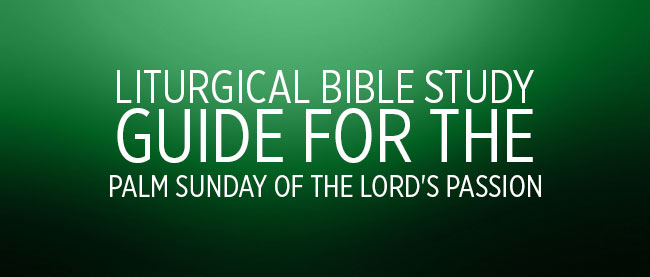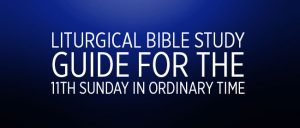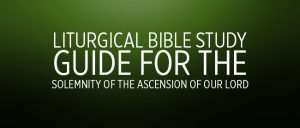Introduction
Passion week ends our celebration of Lent. Our Lenten preparations have been focused on improving our response to God’s call so that we, His children, will be ready to come home and live for all eternity. Jesus, our eldest brother, has showed us how to live His life so that we can gain eternal life. Our readings today show us how Jesus freely became the eternal perfect sacrifice – the one sacrifice which could open the gates of heaven so that we could have our sins forgiven and forgotten. The sacrifice instituted the New Covenant with God; the covenant in which we are no longer God’s slaves but His children. As with all covenants, this covenant is sealed with a meal, a meal in which all parties partake and which is offered to God. The offering to God is described in Revelation 5:6 by John: “Then I
saw standing in the midst of the throne and the four living creatures and the elders a Lamb that seemed to have been slain.” The meal in which we partake is the Holy Eucharist promised by Jesus at Capernaum “Unless you eat the flesh of the son of man and drink His blood you have no life within you. Whoever eats my flesh and drinks my blood has eternal life, and I will raise him on the last day.” (John 6:53-54). This meal was provided for us by Jesus at the Last Supper.
Procession Gospel – Luke 19:28-40
Jesus is completing His journey to Jerusalem; the place He knows that He must go for His passion. Our Mass this Sunday opens with Luke’s account of Jesus’ Messianic entry into the city.
1st Reading – Isaiah 50:4-7
Our first reading is from the third suffering servant song of the prophet Isaiah. This song tells how the Messiah will be treated when He comes.
2nd Reading – Philippians 2:6-11
Our 2nd reading has been called “The Christ Hymn” because of the distinctive qualities of this passage. It has a rhythmic character and a use of parallelism which have led to the view that Paul is quoting a hymn composed independently of Philippians (possibly originally in Aramaic). The hymn has a basic twofold structure: verses 6-8 describe Christ’s abasement; while verses 9-11, His exaltation.
Gospel – Luke 22:14 – 23:56
Saint Luke combines here two traditions: one, a farewell discourse to his disciples and the Church and the institution of the Eucharist (22:14-38); and second, Jesus’ passion, death, and burial (22:39-23:56).
The Eucharist was instituted at a Passover meal. At the Passover meal it was the custom for the youngest boy to ask the head of the household four times “What does this mean?” about the meal, the lamb, the unleavened bread, and the bitter herbs (see Exodus 12:26; 13:8-14). The father would answer in turn with the following texts of Scripture: Deuteronomy 26; Exodus 13; Exodus 12:29; Exodus 1:14. John was the youngest at the Last Supper.





